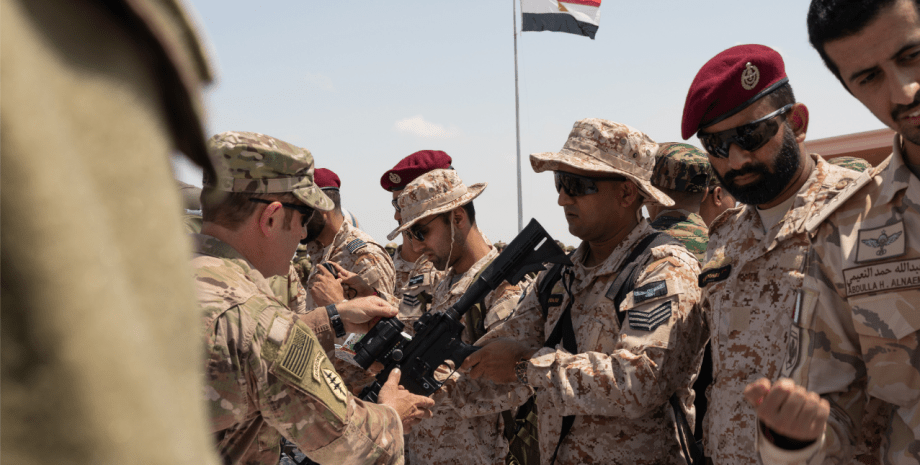
 By Eliza Popova
By Eliza Popova
One of the last examples is the input of Saudi Arabia in Yemen with the support of the United States. However, the operation is quickly tied. The problem with the countries of the Middle East is not in the absence of funds or weapons. The total military expenditures of the six countries of the Persian Gulf Council, as well as Egypt and Jordan reach $ 120 billion a year. For comparison, European countries had a budget of $ 380 billion in 2023.
Egypt and Jordan are one of the largest recipients of US military assistance, about $ 1. 7 billion a year. However, often countries spend in vain, such as fighters that are poorly adapted to asymmetric threats. According to Andreas Kriga from the Royal College in London, contracts are usually signed to influence Western governments. For example, the purchase of Catar F-15, Rafale and Typhoon retained affection in Washington, Paris and London, respectively.
Often, land and naval forces suffer from aviation. Usually the fleet is concentrated on coast defense, although they depend on access to commercial navigation. There are also not enough warning sensors and interceptors. Usually, the Middle East is rely on the US and Britain fleet. More importantly, the Arab armies in general reflect the authoritarian neuroses of their rulers, they write in the publication.
Military commanders do not want to give ordinary soldiers independence and freedom of will needed for general military operations, as it is started in the West. Training exercises are often little like combat reality, Kries notes. The Arab armies are also regarded as the Praetorian Guard. The 130,000th National Guard of Saudi Arabia is the power of personal protection of the ruling family. In Egypt, the army runs a branched commercial empire that deals with all: from resorts to construction firms.
There are examples of effective armies. UAE and Jordan have capable and professional armies, especially special units and pilots. In 2015, the Emirates Special Forces carried out a complex assault attack on the port city of Aden, which struck Western observers. As a result, the Arab countries will not trust each other badly, but from time to time they will cooperate together. An example is Iran's impact on Israel.










All rights reserved IN-Ukraine.info - 2022